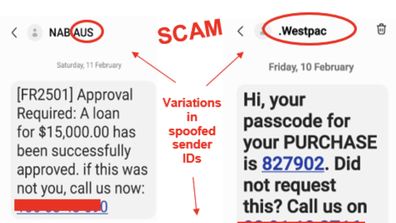The FBI in the US issued a warning yesterday over the risks of plugging into free communal charging stations – potentially exposing them to ‘juice jacking’.
And tech experts say Australians face the same risk.

Dr Mohiuddin Ahmed, senior lecturer in computing and security at Edith Cowan University, said public chargers could have been compromised – and it’s impossible to know if they have been tampered with.
“It is very, very well possible that if you just see a random public charging cable, plug in your phone, who knows? That charging cable might have some embedded software which can extract data from your phone or embed malicious software which will keep on spying on you,” Ahmed told 9news.com.au.
“Even if you run out of battery you should never ever use anything public – that’s the bottom line of cyber hygiene.”
He said even the new wireless chargers could also be risky if paired with public devices.
He said instead, travellers should rely on using regular electricity plugs and their own charger cables if they need to boost their battery while away from home.
However, he said he has not heard of any recent incidents of people’s phones being compromised in Australia in this way.
Using public chargers at hotels and shopping centres is also risky, crime bureau the FBI warned in America earlier this month.
In a tweet, the FBI in Denver said “bad actors” have found a way to upload “malware and monitoring software” onto users’ phones.
Read Related Also: How old is Jonathan Ross and what’s his net worth?
“Credit cards, passwords to banking accounts, your home address – all of that, if you’ve ever put it into the internet anywhere could potentially be saved in your history in your phone.”
The Federal Communications Commission (FCC) in America also warned even warned some cables left at the charging stations, or given away for free could be “infected,” and should never be used.
What is ‘juice jacking’?
Using public chargers brings added security risks- and it’s impossible to know which might have been tampered with.
When you plug a phone into a USB charger you’re potentially not just boosting the battery.
Not only can what’s on your phone possibly be downloaded by thieves, criminals can potentially plant malicious software on it too.

If a port is compromised, there’s no limit to what information a hacker could take, Paik said.

The text message to look out for that could trick almost anyone
That could include email, texts, photos and contacts.







